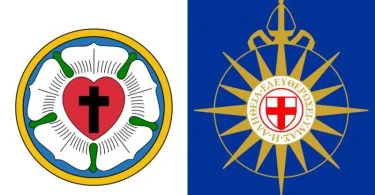Democracy and monarchy are two administrative structures that exhibit many differences between them. Democracy is a structure of administration in which the authority of governing is gotten from the masses. On the contrary, a monarchy is a structure of administration in which the person referred to as the monarch is provided all the political authority. The monarch is the director of the state in a monarchy. As monarchy and democracy are both essential administration structures, one ought to understand the difference between the two. As such, this article explores the two kinds of administration under the head of state, deciding the head of state, the way the law is specified, and the types of democracy and monarchy.
What is Democracy?
Democracy possesses its roots in ancient Greece. Democracy is a structure of administration steered by nominated representatives. Often, the president or prime minister is regarded as the head of state in a democracy. Individuals select these delegates. On the contrary, the authority dwells on the shoulders of the individuals to vote for the administration of their choice. It just implies that democracy endorses election. An election is an individual’s selection in a democracy. Furthermore, delegates are voted for just a period. If they must become delegates again, they must go through another election. When it comes to democracy, commonly, every individual is the same in the eyes of the law. There are no favorites. It is fascinating to understand that there are various structures of democracy, which include parliamentary democracy, representative democracy, direct democracy, liberal democracy, and constitutional democracy. It is to be known that democracy is founded adequately on parity and independence. In a democracy, the inhabitants vowed equality and independence.
What is Monarchy?
Monarchy needs an evident description as to when it started. When it comes to monarchy, it is the monarch that is the administrator of the state. Until the monarch perishes or another individual takes over the monarch, they stay as the administrator as long as they are still alive. The monarch is usually a king, prince, Queen, or princess. When it concerns judgment-making in the monarchy, the ruler is the law. This implies that the ruler determines as fairness is fairness, even when it is wrong. However, a monarchy is distinct in the sense that the ruler is not limited by law since they are the one who creates the law in society. Furthermore, a monarchy does not restrict the independence of the people; however, the license lies in the deliberations of the ruler. This implies that there is no one to prevent the ruler from favoring those they care for and punishing those they do not care for. It is essential to understand that the people from the ancestry and lineage acquire authority and status in the events of a monarchy. Furthermore, there are various kinds of monarchy, including constitutional monarchy, hereditary monarchy, absolute monarchy, and elective monarchy. When it comes to hereditary monarchy, the status of a monarch is inherited by the person’s relative, based on the customary decree of succession. Nations which include Thailand and UK, are instances of constitutional monarchy.
Difference Between Monarchy and Democracy
- Democracy is a structure of administration whereby the authority of governing is obtained from the masses. On the contrary, monarchy is a structure of administration whereby a person described as the monarch is provided all the political authority.
- A monarch is described as an administrator of the state in a monarchy. Democracy is an administration headed by a president or prime minister.
- One of the significant differences between democracy and monarchy is that in democracy, everyone is equivalent when it comes to law. On the contrary, a monarch is the law in the event of monarchy. This implies that the monarch determines fairness as fairness, even when it is false.
- Monarch is endless unless another individual overthrows them. The delegates of democracy must go through re-election if they are to handle authority after their nominated period.
- Monarch acquires authority via heredity. The people select delegates in a democracy.
- There are various kinds of democracy: representative democracy, direct democracy, constitutional democracy, liberal democracy, and parliamentary democracy. The monarchy has several types: constitutional monarchy, hereditary monarchy, elective monarchy, and absolute monarchy.







